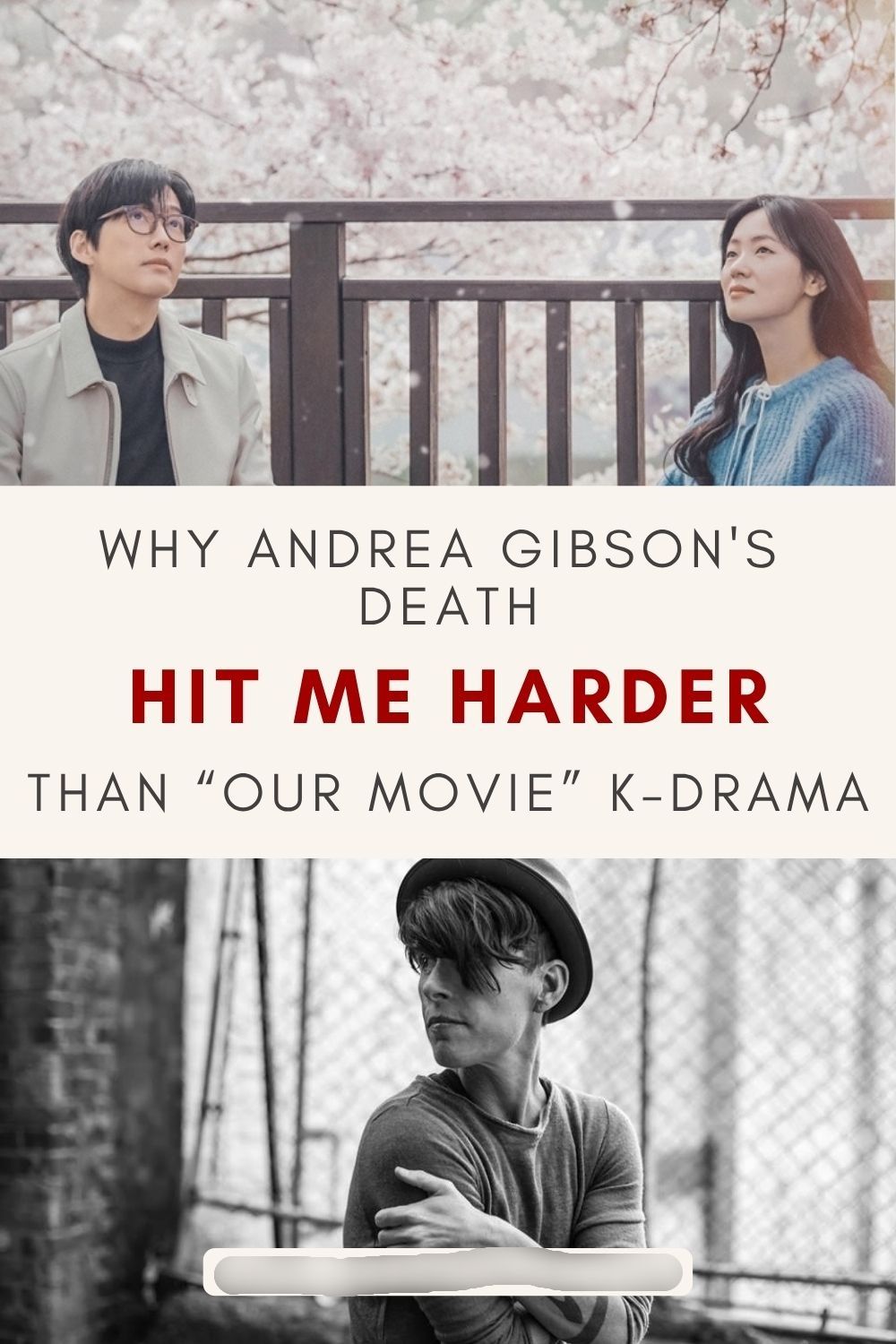
This past week was hard because Andrea Gibson died, and I’m still trying to figure out what that means. I never met them, but their death feels strangely personal to me. But if you’ve read Andrea’s poems, you know exactly why. Andrea’s poems aren’t just pretty words but they are pieces of themselves they left behind. They are bloody, honest, and vulnerable.
I also watched Our Movie, a Korean drama about the slow, painful journey of dying and saying goodbye, that same week. The themes of death, memory, and love all fit together, but my response to each couldn’t have been more different.
Our Movie is exceptional. The cinematography is soft and dreamy. The acting is gentle, the soundtrack minimal. Namkoong Min plays Lee Je-ha, a quiet man who watches the woman he loves, Daeum (played by Jeon Yeo-been), die of a rare, incurable disease. She is calm, joyful, and completely at peace with dying. And he is steady, restrained, and almost stoic in the way he grieves. It’s not a bad drama; in fact, many people praise it for the gut-wrenching themes of death, dying, and hope. But for someone like me, who demands emotional rawness, it made me feel underfed.
I know the character choices were intentional. Daeum doesn’t fight her death because she is content and fulfilled. She has lived, loved, and achieved her dreams. She got what she wanted. Je-ha doesn’t break down or scream when he thinks of her. His grief is not outward but you still see it in his eyes and gestures. You see the grief, but you don’t feel it.
And maybe the show makers wanted to show us that some losses are quiet. Some people don’t break when they’re hurting. They simply retreat, bend inwards, and go still. But for me, that restraint made it hard to connect. I was waiting for something to break open. I wanted Je-ha to scream, cry, or do something that would show me how much Daeum meant to him besides memory flashbacks and stares into space. Oh, he did cry but somehow I couldn’t connect with the way he grieves.
The drama wasn’t wrong. It’s just that I couldn’t connect with it emotionally. And that made me think of Andrea.
Andrea Gibson didn’t whisper about death. They roared and cried on stage. They made you feel uncomfortable because their truths were so intimate. Their words weren’t polished or pretty; they were rough with honesty. Andrea’s poems made you feel seen. And that’s why so many people are mourning their passing.
Andrea wasn’t afraid of being vulnerable and real. They weren’t afraid of naming the pain, sitting with it, and saying, “You’re not alone in this mess because I’m here too.”
And maybe that’s why their death feels more real than a fictional one. Andrea was there for us in the kind of grief that makes you feel like your heart is breaking and your voice is shaking, and it reminds you that this life is fragile, but it’s also worth feeling everything for.
I realized this week that I don’t just want beauty in art. I want pain and emotional bruises. I want to feel the grief and not just admire it from a safe distance. And I’m not ashamed of that anymore.
It’s not selfish to want art that speaks your emotional language. Our Movie was very well made but I think it’s okay to say that it didn’t satisfy me on the level that I had hoped for. The way I live—intensely, with longing, and an endless desire for truth—shapes my expectations. So when something falls short of that, I notice. And I’ve learned to be honest about it.
Maybe that’s the reflection for this week. This is not a review or critique. It’s just a simple truth that some stories observe grief and others enter it with you. And this week, Andrea Gibson reminded me that I will always need the latter.
I’m grateful for the reminder. And I hope that when my time comes, I’ve written even a little bit as honestly as Andrea did.
Rest gently, Andrea. And thank you for the gift of your words.
I leave this excerpt from Andrea’s poem, Love Letter From the Afterlife. You can read the complete poem on their Substack. Mind you, the imagery in this poem is breathtaking.
“My love, I was so wrong. Dying is the opposite of leaving. When I left my body, I did not go away. That portal of light was not a portal to elsewhere, but a portal to here. I am more here than I ever was before. I am more with you than I ever could have imagined.”
And this poem, When Death Comes to Visit was written by Andrea years ago and released posthumously by their wife, Meg, on 25 July 2025.
https://www.youtube.com/watch?time_continue=17&v=tnq4DVkTWb8&embeds_referring_euri=https%3A%2F%2Fibanwoman.com%2F&source_ve_path=MjM4NTE
That's it for now. If you read this far, thank you. I appreciate it so much! I'm a non-native English speaker, and English is my third language. Post ideas and content are originally mine. Kindly give me a follow if you like my content. I mostly write about making art, writing, poetry, book/movie review and life reflections.
Note: If you decide to run my content on an AI detector, remember that no detectors are 100% reliable, no matter what their accuracy scores claim. And know that AI detectors are biased against non-native English writers.
Note: All images used belong to me unless stated otherwise.
